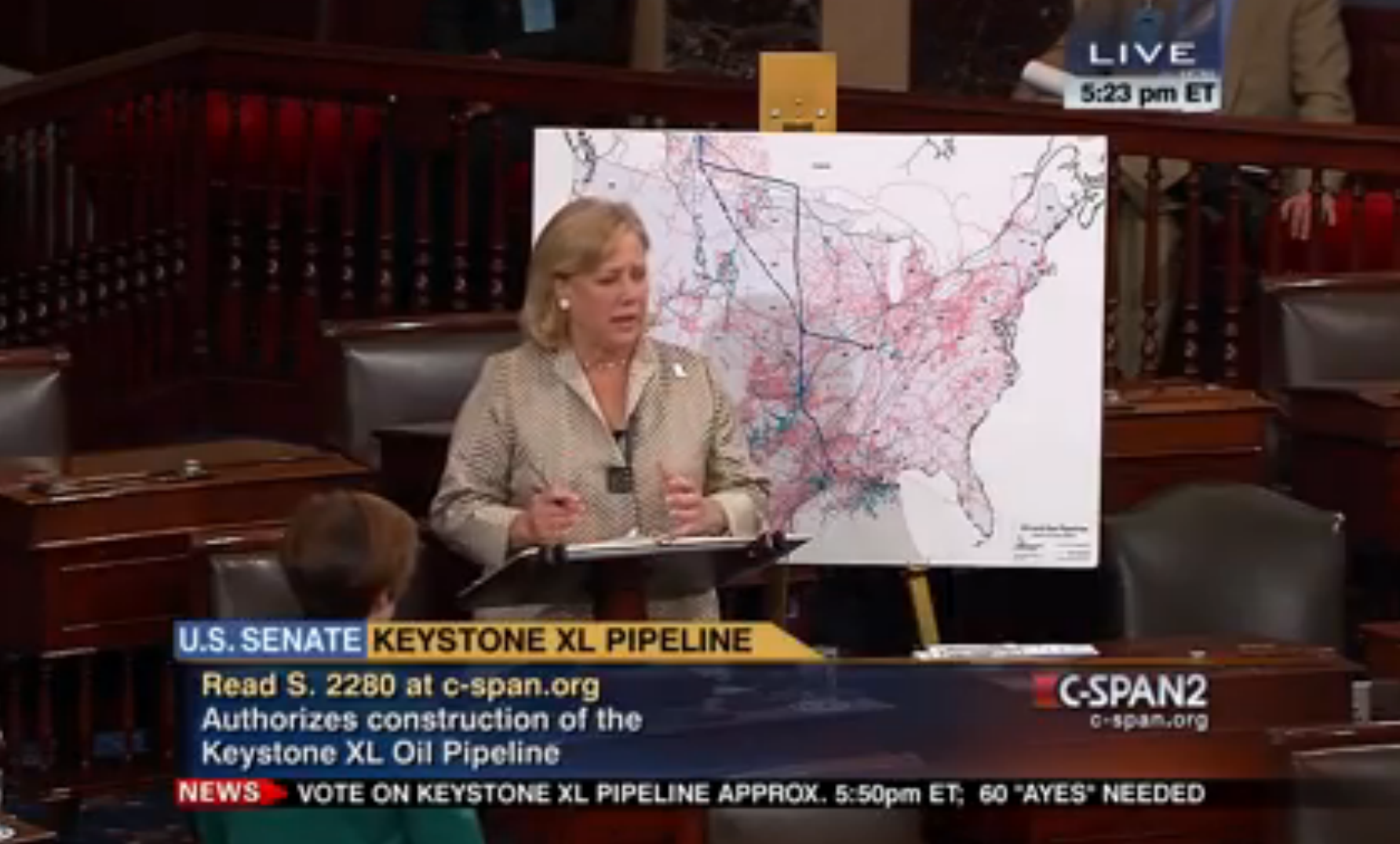WASHINGTON- By a single vote, the Senate blocked a bill that would have permitted a Canadian oil company to expand a pipeline from Alberta to the Gulf of Mexico. It marked a big setback for the Keystone XL Pipeline and also for Sen. Mary Landrieu, a key supporter of the long-delayed project.
Landrieu, the bill’s co-sponsor, prodded the Senate to approve the oil pipeline expansion during a two-hour speech on the Senate floor last week. Her “Hail Mary,” as Capitol Hill reporters’ called it, comes just weeks before she faces a run-off election in Louisiana to save her Senate seat.
“I called for this vote, not Harry Reid, not Mitch McConnell. I called for it, and I think it’s worth fighting for,” Landrieu, D-La., said Tuesday before the bill failed.
But, in a procedural vote, the Senate fell one short – 41-59 – of cutting off debate and allowing action on final passage of the legislation. Landrieu needed 60 votes to advance the measure. An identical bill, authored by Landrieu’s Republican opponent, Rep. Bill Cassidy, passed the House on Friday by 252-161.
If passed, the legislation would have gone straight to President Barack Obama for his approval, or a veto. The president had not said whether or not he would have vetoed it, and his aides have been vague.
“It certainly is a piece of legislation that the president doesn’t support,” said White House Spokesman Josh Earnest at a briefing Tuesday. “The president has been very clear about what our views are as it relates to Keystone.” Obama has never said he is against the project – but he opposes any effort by Congress to go around his administration, which has the authority to approve or reject the pipeline expansion.
The existing Keystone Pipeline runs from Alberta, Canada to Cushing, Oklahoma. Under the bill, TransCanada Keystone Pipeline, L.P., would be allowed to add two extensions: one connecting Oklahoma to the Gulf Coast, and another connecting Alberta to Kansas.
Keystone opponent Barbara Boxer, D- Calif., said that the expansion of the Keystone Pipeline won’t benefit Americans’ pocketbooks, as her colleagues such as Heidi Heitkamp, D-N.D., argued Tuesday.
“Moving tar sands oil to the Gulf Coast gives it access to international markets, which will increase the price Canadians can charge for it,” Boxer said, alongside enormous poster boards that showed children holding oxygen masks to their faces.
Sen. Brian Schatz, D-Hawaii, called the project an “extra lethal” pipeline, asserting that it in one year, tar-mining in Canada used more water than the entire city of Toronto uses annually.
“It does nothing for American energy security,” Schatz said on the Senate floor. “We don’t need this oil enough to justify the effects on health and climate change.”
Environmentalist protested the project prior to the vote on Capitol Hill Tuesday night.
Sen. Pat Roberts, R-Kansas, jokingly referred to the poster boards Boxer used, and said he thought about introducing legislation to ban charts from the floor. Roberts said that the Keystone expansion would create 42,000 jobs, provide 800,000 barrels of oil per day, and have a $3 billion dollar impact on the U.S. economy.
But Boxer said “this trail of misery should not be put on the American people.”


